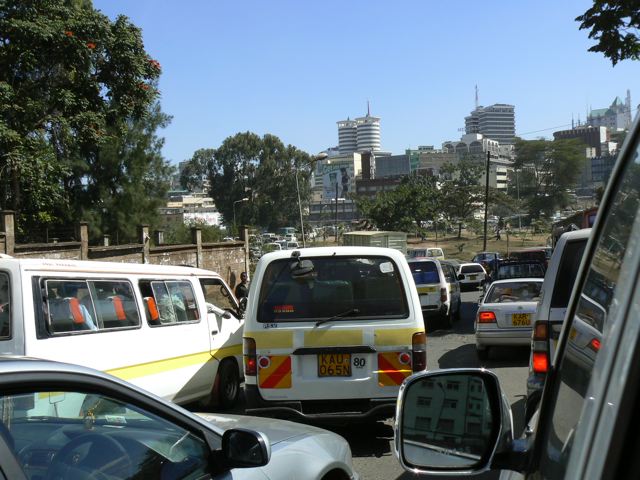What Everyone Ought To Know To Avoid Looking Like A Naive Tourist In Nairobi
October 13, 2013

If you are privileged enough to visit Nairobi, you can decide to approach the city out of fear and simply visit the airport, hotels, and expat bars.The other more rewarding option is to enjoy the vibrancy and rich culture of Nairobi (aka "Silicon Savannah") by using public transportation to navigate the capitol.
Make sure to remember a few things to lower your chances of over-paying, getting lost or getting stressed:
-
Death and taxes....and traffic: just embrace the fact that you will get stuck in a traffic jam at some point. Consider taking a "boda boda" to weave through traffic and people on sidewalks
-
Matatus are the most cost cozy and entertaining form of transportation: literally rub shoulders with locals while listening to 90's R&B and Soul, the real (Masai) Diddi or other upbeat African artists pulsating through the speakers
-
Never pick up coins or anything that was "dropped" while on public transportation: its the tactic used by pick-pockets to me before they stole my mobile phone. Also, beware of passengers who partially place bags on you!
-
It pays to learn a bit of Kiswahili and Sheng (the local dialect): you will be able to haggle or assert the correct price like an informed local. A few useful words to get you started:
-
bob = Never use the word "shilling" when asking for prices in informal settings, i.e. “It costs 30 bob?”
-
Pole sana = “I'm very sorry” ( useful when you accidently elbow the elderly woman next to you when paying your matatu fare)
-
Whe boss! = “hey dude” or “hey friend”
-
Sheng numbers: mbao (20), salasa (30), hamsa (50), sitini (60)
-
Now, there are a few other items you should also take note of to really become a savy traveler and maintain peace of mind:
-
Always carry some cash, but never pay with a denomination higher than 200 ; You can also get a mobile payment account: BebaPay. However, Bebapay and free wifi are not as widely implemented as some might lead you to believe.
-
Wait for other fellow passengers to pay first and watch how much they pay to avoid being over charged
-
Don't expect a map of routes, there are none in print form: ask a friendly local which matatu or bus number to take to your destination
-
Get familiar with major landmarks and some street names in “town” (how Nairobians refer to downtown): town is the main public transportation hub; directions are given based on landmarks, seldom by street names
-
Be aware and alert, not scared and oblivious: They don't call it “Nairobbery” for nothing. Crime exists here, just like it does in any big city with large socioeconomic disparity. So make sure to hold onto your belongings securely and avoid walking at night. Finally, walk like you know where you are going, even when your lost. It shows confidence and makes you less of a target.
What does this have to do with my Kiva Fellowship?
I witnessed how much time microfiance officers and customers spend simply travelling between towns and even locations within one city. Delays caused by traffic, questionable road quality, adverse weather or police checks cause microfinance borrowers to spend less productive time at work.
They also increase costs for Kiva Partners who are working to increase access to financing to those excluded by the conventional banking system. Providing Kiva Partners with tablets can decrease the amount of time microfinance officers spend travelling back to their office to upload data and increase the amount of customers they can service.
PREVIOUS ARTICLE
Culture Shock - Tea and 5 Other Things You Might Not Know About Ukraine →NEXT ARTICLE
In the Spirit of Eid al-Adha →













